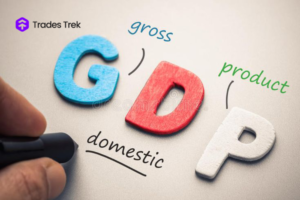Due to factors like inflation and interest rates, the naira now is worth more than a naira in the future. Inflation is the general rise in prices, which means that as a result of this change in the general level of prices, the value of money declines over time. Naira will be able to purchase more goods in the future than it can now.
The interest rate adjusts to changes in the price level. What, then, can you do to maximize your money’s growth to secure it for the future instead of letting it sit idle in cash and continuously lose value?
Investing money today could result in a larger sum in the future. Your ability to invest your money today will ensure that you have it tomorrow. You can use, grow, or invest the money you receive today. The value of your money will depend on what you do with it today.
Continue reading as we take you on a journey through maximizing your current investments to secure wealth for the future.
Make a plan and put it into action.
Every financial goal and decision begins with a plan. Without careful planning, no goal can be fully attained, so if your goal is to secure your financial future, you must do so. Write down your goals in the beginning, keep them in constant review, and keep striving to achieve them.
Say no to debt.
Lack of a solid plan for debt repayment can result in an unsustainable way of life. Without debt, you may concentrate on increasing your savings, investing those extra dollars, and enjoying more financial peace of mind.
Start early and consistently save.
When it comes to investing, time is a marvellous thing. When the power of compound interest and time combine, the outcome is always positive. Over time, even a small sum set away each month has the potential to increase dramatically. Especially if you get going early.
Therefore, if you invest 200 NGN and it returns 5% after a year, your principal is now 210 NGN. If you receive a 5% return the next year in addition to the initial 200 NGN, you will receive an additional 210 NGN and will now have 210.25 NGN. Compounding returns means that as your capital grows, so do your gains. The power of compounding might continue to operate longer as you approach retirement, causing your savings to increase more quickly than anticipated. The more advantages you can obtain, the earlier you begin saving.
Create a budget.
First, you must determine how much money you can set aside monthly for your investment strategy. There is no set minimum here, and you may begin with as little as 1,000 NGN. The idea is to set a minimum amount from your savings that you may dedicate and then honour that promise. To create a budget, you must practice financial restraint and reduce expenditures.
Building your emergency reserve is necessary before you look into investment opportunities. An emergency fund should ideally equal three to six months of your income, depending on your costs. Making sure you have enough cash on hand to cover unforeseen expenses without losing your investment is the goal of an emergency fund. Keep your emergency fund in an easily accessible savings account.
In some circumstances, it also helps you pay off high-interest loans like credit card debt. See whether these can be shifted to lower-interest programs as an alternative. Remember that interest is only a one-time extra charge on your account with no benefits.
Invest wisely.
Even though the amount you can set aside each month can seem insufficient, the key is to invest it wisely. The early investment allows you to grow your funds into capital that you may utilize to achieve your financial objectives, such as early retirement or purchasing a car. It teaches you how to manage your money well and aids with your transition to financial independence.
Your goals will determine your investing strategy. Investing that is either passive or active. Monitoring the constant changes in the market is part of active investing. It enables you to quickly reduce risk, pursue winning transactions, and build wealth. Passive investing, on the other hand, concentrates on long-term gains. It enables a portfolio to generate income by carefully distributing risk among various assets. A passive strategy is often safer even though it may produce money more slowly and may not allow for any dramatic gains. It allows your money to grow gradually toward a specific objective.
Recognize different investment options to determine which best suits you.
Various investment alternatives exist. Understanding how each operates will help you choose which best fits your investment style and objectives. The most popular asset types include stocks, bonds, mutual funds, and exchange-traded funds (ETFs). You might probably choose from among these asset classes when investing. The hazards associated with investments in various asset classes are frequently category-specific.
Understand the investment’s risks and ensure they suit you before you make any money. You should also know the costs of purchasing, selling, and keeping the investment.
Buy a variety of assets.
You can utilize portfolio construction to assist you in withstanding market volatility by including at least some assets with lower risk. Even if they yield lower returns, low-risk investments can lose their purchasing power due to inflation.
You risk losing buying power over time if you only choose low-risk investments. Low-risk investments make for excellent short-term investments or a reserve for your emergency fund because of this as well. Higher-risk investments, on the other hand, are more appropriate for higher long-term returns and a higher return. Investing in various assets can help you increase your money as much as possible for security in the future. Utilize growth while maintaining your defences. For instance, you can mix fixed income with stocks in your investments.
Your stock portfolio will expand significantly in a good year.
Because bonds typically, but not always, perform better than stocks in difficult times, holding fixed-income assets like bonds in your portfolio shields at least some of your investment from significant losses during a weak year.
Getting rid of emotional investing.
Emotional investing leads to rash decisions and impulsive trading, which hinders the growth of wealth. Emotions in the stock market can be harmful. It may deprive you of wealth and harm your objectives. Therefore, it’s crucial to control your emotions.
Excluding emotions from investing is essential to build long-term wealth and staying on track to meet your financial objectives. The impulses or actions that arise when markets experience highs and lows—buying or selling—are the ones that are crucial to accomplishing financial objectives.
You must switch your attention from stock price fluctuation to the functioning of the underlying firm to ensure that emotions do not influence your investing choices. Be aware that a bull run frequently accelerates a fundamentally weak stock, making it appear to be appealing.
To Sum Up
You must use the advice above to maximize the growth of your hard-earned money and protect it for the future. If followed, this advice will help to prevent several mistakes that could result in losses.




